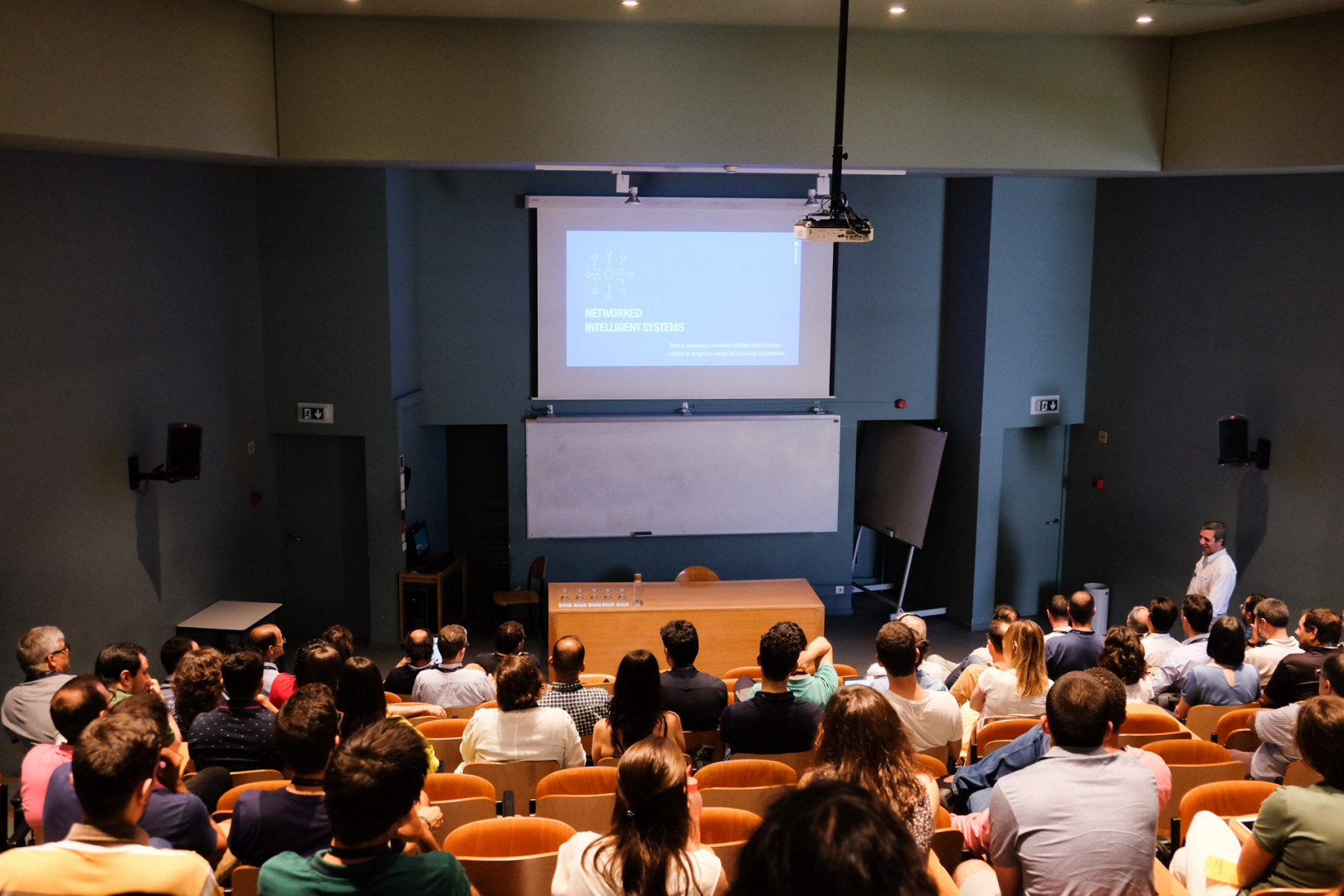INESC TEC organises internal Open Day in the Networked Intelligent Systems area
On 18 July, the Networked Intelligent Systems (NIS) cluster organised its first Open Day, an internal initiative addressed to all the collaborators of the cluster, which was held at the premises of the Faculty of Engineering of the University of Porto (FEUP).
19th August 2019
This initiative, which aimed at defining a scientific strategy and promoting the connection between the centres that make up the NIS cluster, allowed to present the cluster’s vision to all collaborators, as well as the main research areas from the several centres.
Creating hybrid networked intelligent systems highly endowed with sensing, information processing, communications and navigation capabilities is the main goal of the cluster that is composed of four R&D centres, namely the Centre for Applied Photonics (CAP), the Centre for Biomedical Engineering Research (C-BER), the Centre for Robotics and Autonomous Systems (CRAS) and the Centre for Telecommunications and Multimedia (CTM).
With an attendance of around 100 collaborators, the initiative began with a presentation made by the Coordinator of NIS cluster, Manuel Ricardo, followed by a presentation of each of the Coordinators of the cluster's constituent centres.
According to Manuel Ricardo, “this initiative represents a very important step in the definition of a joint research strategy for the next decade, which will be defined around four main research lines: Sensing, Communications, Computer Vision and Autonomous Systems. The cluster’s primary goal will be the production of excellent science, which is intended to be substantiated in high numbers of PhD theses, publications in journals of very high scientific impact and patents.”
“The scientific complementarity of the NIS centres and the arrangement of the scientific activity in pre-identified fields of application will not only allow to obtain scientifically relevant results but also of high economic and social potential”, adds the Coordinator.
After the presentations, the participants were invited to visit an exhibition session of the several demonstrators and scientific activities of the cluster's research lines. Finally, several roundtable discussions were created, with the main theme “Desafios de Investigação para a Próxima Década” (in English “Research Challenges for the Next Decade”) being addressed. The conclusions of these roundtable discussions were presented to all the participants of the event in the closing session.
The researcher mentioned in this news piece is associated with UP-FEUP.


